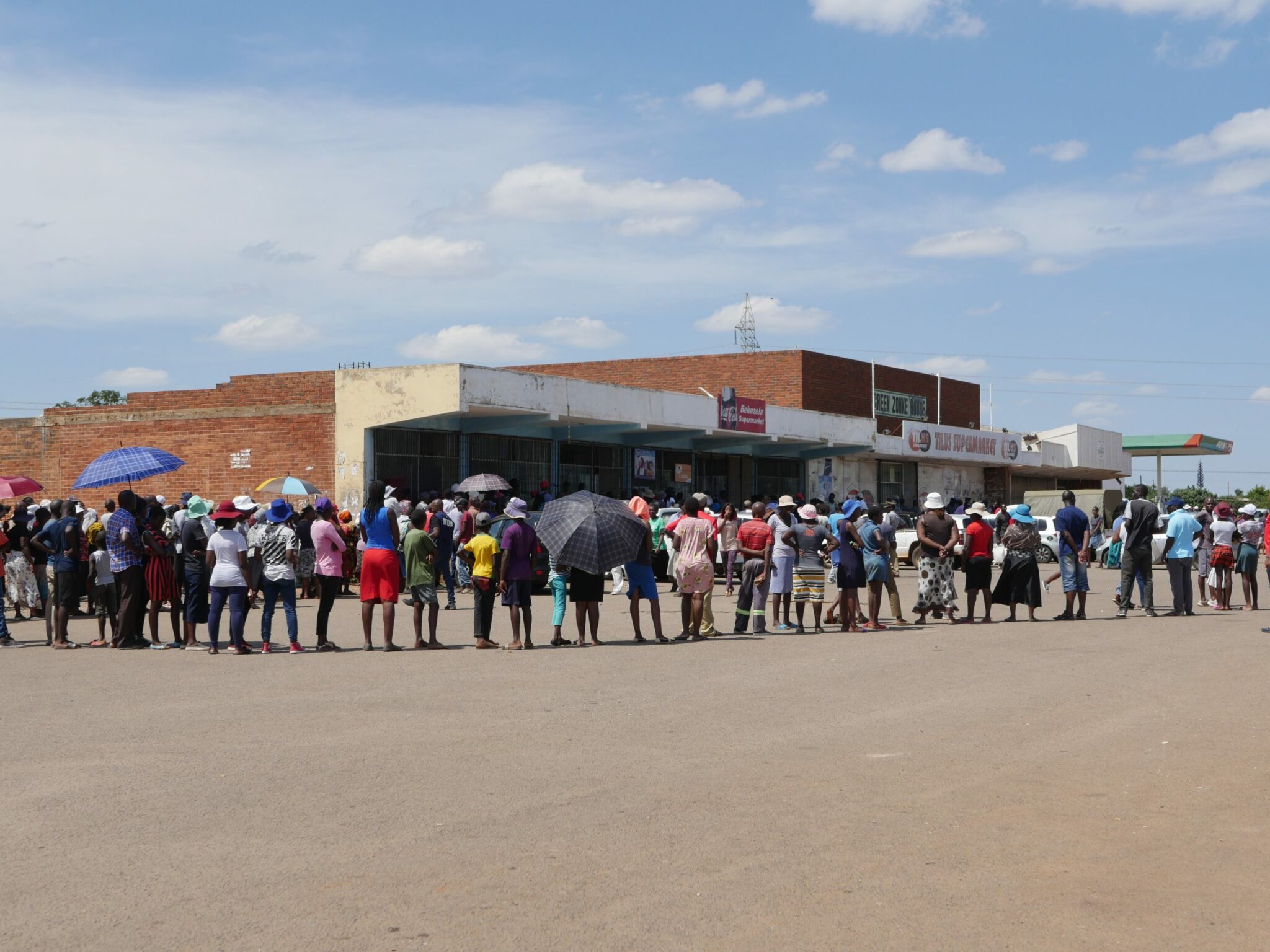By Oscar Makina
The 21-day lockdown which came into effect on Monday has laid bare the dire food situation faced by urbanites, particularly in high-density areas, who have largely ignored the ‘stay-at-home’ calls to combat any outbreak and spread of the Coronavirus disease.
Bulawayo residents’ associations while acknowledging the food crisis raised a red flag over the lackadaisical approach by people staying in the high-density suburbs.
President Emmerson Mnangagwa last week imposed the lockdown as part of the broader move to combat the spread of the disease.
The disease which has claimed thousands of lives across the globe has so far killed one in Zimbabwe with eight having tested positive and are still undergoing treatment.
With no case having been reported in the second largest city, residents appear to be in a fix over the lockdown.
A tour of the high-density suburbs yesterday revealed a sad story as people seem to have ignored the social distancing rule and also the need to stay at home.
This reporter witnessed lots of movement and loitering within the suburbs, taking advantage of the unavailability of law enforcers. While shopping centres were not congested as usual due to constant police patrols, the streets within the suburbs were visibly a hive of activity with children playing their usual games.
On the other hand, some youths and elderly could be seen drinking beer in groups outside house gates. Some could be seen drinking from cars while treating themselves to some music.
As if not enough, some vendors have retreated and now selling from their backyards in the process attracting many people. What is painful is that most those people in the high-density suburbs are not adhering to the preventive measures like wearing masks and gloves let alone sanitising their hands.
“The main challenge is that residents are in the hunt for mealie meal. The other thing remember there is water-shedding so residents end up flooding boreholes and council water bowsers. In the end, it’s difficult to achieve social distancing under these tough conditions where people are suffering,” said Ambrose Sibindi Bulawayo Progressive Residents Association (BPRA) chairperson.
BPRA secretary for administration Thembelani Dube admitted the situation in high-density suburbs needed urgent attention to prevent the pandemic.
“There are a number of factors why residents are ignoring the lockdown. The main reason can be due to lack of police and army visibility, shortage of food, lack of self-discipline due to little knowledge around the coronavirus spread, water-shedding in some wards as well as mealie meal shortage,” Dube said.
He, however, said there was a need for law enforcers’ visibility in the high-density suburbs.
“Police must be visible and daily move around with hailers educating people on the need to stay at home. On another note, mealie meal subsidy must be removed so that during the lockdown period the commodity will be available.”
Bulawayo Vendors and Traders Association (BVTA) executive director Michael Ndiweni said there was a need for government to deal with the food situation to ensure there is little movement by residents.
“People I spoke to yesterday said told me that they are in need of food so they don’t have options but to go to shops and look for whatever they need, however, some I spoke to said they were just loitering after they say others doing the same.
“The biggest issue is here is food, if the government can chip in on that that will lessen the number of movements. Also, the other issue is some are saying its month-end and they need to pay rentals so they have to make a move and hunt for cash or else they will have to face their landlords,” Ndiweni said.
Bulawayo City Council director of health services Dr Edwin Sibanda said the development was a danger to the society.
“This whole thing then clouds the efforts to prevent the spread of the disease. As it is the biggest challenge will be what we call contact tracing, we won’t be able to trace where and when one got infected.
“So the best way is people should simple adhere to the government statutory instruments which demand that people stay indoors, make sure they maintain social distancing among other measures,” Sibanda said.
He, however, implored the law enforcers to exercise their power to ensure that people adhere to the dictates of the lockdown as proclaimed by President Mnangagwa.

